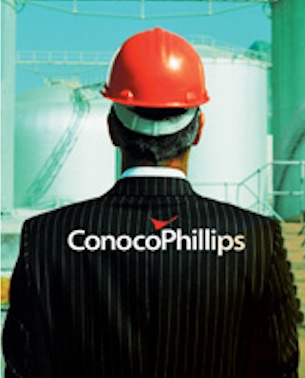by Eric Krell
Judging by the wisdom of the crowd, “Freakonomics” – the application of the dismal science to address a wider range of societal issues (crime rates, education reform, baby names, drug dealing) in a compelling, often controversial and exceedingly user-friendly manner – has passed the tipping point.
Thanks to the very recent best-selling success of authors like Steven Levitt (Freakonomics), Malcolm Gladwell (The Tipping Point, Blink), James Surowiecki (The Wisdom of the Crowds) and others, it appears economics has gone mainstream. But appearances can be deceiving, as anyone who analyzes hard data for a living knows. In a twist Levitt and his co-author Stephen Dubner might appreciate – after all, their book claims to explore the hidden side of everything – modern economics, it turns out, has enjoyed a lengthy and, at times, influential presence in mainstream culture since its inception.
Whether that presence is helpful, harmful or neither remains open to debate.
For economists and writers who know how to translate highly complex economic analyses to engaging, well-written stories for mass consumption, this trend has proven lucrative. The Tipping Point, which examines the theory of “social epidemics,” has occupied the New York Times best-seller list for almost three years. Tack on the suffix “nomics” to almost any phrase, and there’s a good chance an ambitious acquisitions editor will snap up your manuscript (just don’t name it Freedomnomics because that book, which probes the logic of free-market economics, rolled off Regnery Publishing’s presses in June).
A brief history lesson sheds new light on economics’ most recent immersion into mainstream culture in the form of best-selling business books, newspaper columns and the ubiquity of their authors on television news and business shows and on the business conference circuit. That historical context, in turn, illuminates some of the impacts of this trend and pros and cons of “mainstreamnomics.”
As Gladwell’s blurb on the cover of Freakonomics warns, “prepare to be dazzled.”
Chapter 1: The Source of Supply
Steven Green, professor of Economics, department chair, and graduate program director in Economics at Baylor, has a theory about economics’ most recent incursion into mainstream culture. He points to three elemental forces:
1. Authors who want to popularize economics;
2.Technological advancements; and
3.The allure of the counterintuitive.
Steven Levitt, Steven Landsburg, Milton Friedman, Richard Posner and other “popularizers” – whether they are economists, or lawyers or writers who frequently write about economics – firmly believe the dismal science can illuminate discussions on a broad range of topics.
“As Levitt sees it, economics is a science with excellent tools for gaining answers but a serious shortage of interesting questions,” writes Dubner of his Freakonomics co-author.” His particular gift is the ability to ask such questions. For instance:
If drug dealers make so much money, why do they still live with their mothers?
Which is more dangerous, a gun or a swimming pool? What really caused crime rates to plunge during the past decade? Do real-estate agents have the clients’ best interest at heart?” Those sorts of questions are much more likely to resonate with a popular audience, rather than addressing what may happen with interest rates next quarter, notes H. Stephen Gardner, Herman Brown professor of Economics and director of Baylor University’s McBride Center for International Business.
“When we economists weigh in on big social issues of the day – what can be done with health care reform, education reform, war and peace – we are more likely to get the attention of the general public,” Gardner explains.
Fortunately for Levitt, Dubner and their contemporaries, technology advancements have made it much easier to answer interesting questions today than it was even as recently as 10 years ago.
“Computers have come a long way in the past 20 years,” Green points out. “We can do more sophisticated data analysis, and we have better statistical techniques to apply.”Those advancements help economists disentangle causality issues that previously stymied them from answering many interesting questions. In the not-so-distant past, for example, it would have been difficult to know definitely if a correlation between the size of a police force and the frequency of crime in a metropolitan area occurred because more police officers cause crime rates to drop, or because cities hire more police officers when crime increases.
As the information age matures, the amount of data economists have to work with also expands. “Better data sets exist today,” Green adds. “That’s especially true for longitudinal data where you follow particular groups of individuals over longer periods of time.” More and more robust, data provides better control, which translates to more accurate and more rigorous analysis.
“Before, much of [economic analysis] consisted of theorizing,” notes Van Pham, assistant professor of Economics at Baylor University. “Somebody who was very astute at observing patterns would then apply economic theory. Now, more people can really dig into the data. Thanks to the low cost of data storage, more people can run huge regressions that were not available before.”
Much of what mainstream economists do today is to apply sophisticated statistical techniques where they have not been applied before. “I think economists have tools that other social scientists do not,” Pham adds. “As the availability of data increased, economists branched out to answer many questions that other social scientists and economists did not previously address.”
The final dynamic in Green’s theory is what dazzles readers: the unexpected, counterintuitive and sometimes shocking answers. Most drug dealers earn less than minimum wage.
Real estate agents do not have their clients’ best interest at heart.
“You wouldn’t think on the surface that the way to save trees would be to have more logging and more private ownership of [logging] lands,” says Green. “But, in fact, when there is private ownership, there is the economic incentive to conserve. It turns out, in many cases, that the answers are counterintuitive. That’s controversial and it sparks interest.”
It also sells books. In fact, judging from Freakonomics’ success and the procession of similar titles its sales helped birth, there would appear to be an economic incentive to reach counterintuitive and controversial answers to interesting economic questions.
Add one more factor to Green’s theory: engaging story-telling. “That’s essential,” asserts Baylor associate professor of Economics Charles North, who ought to know (see “A Leap of Faith”). “If you’re going to write a book [about] economics for a mass audience, you can’t lard your writing with jargon or assume that people understand a theory. You have to take complicated issues [and] economic ideas and translate them to easy-to-understand language and compelling stories.”
Chapter 2: Talk to the Invisible Hand
Gardner agrees with North. He also notes that there has been a mass-market side of economics since its modern beginnings.
Gardner points to French political economist Frederic Bastiat’s 1845 book Economic Sophisms. One of the essays in that work took the form of a “candlemakers’ petition.”
The writing satirized the candlemakers guild by having them ask the government for protection from an unfair competitor, the sun. After all, the sun’s free and abundant supply of light was hurting their business (mostly during the day).
Bastiat, whose essay engagingly highlighted the flaws in protectionism, had his candlemakers request that the government require its citizens to cover their windows during waking hours.
Before Bastiat, there was Adam Smith, whose “invisible hand” may have been a late 18th century buzzword that rolled off tongues as easily as the “tipping point” does in 21st century mainstream America. Smith, Gardner notes, also addressed broader social issues that were considered relatively popular during his era such as the institution of education and the effects of colonialism on the British economy. While Karl Marx may have penned Das Kapital for other political economists and scholars, he most certainly wrote his Communist Manifesto to influence the much broader audience of the general public.
Some economists, including Milton Friedman, have enjoyed similar “dual lives,” writing for other economists on one level and then reaching out to a wider, more mainstream audience at another level. Levitt is one example. Other economists, such as John Kenneth Galbraith, enjoy the vast majority of their success and focus more of their energy on communicating their ideas to a mass audience. Still others remained largely anchored in the technical realm of economics, such as John Maynard Keynes, although their ideas were expertly translated to mass audiences by others, such as Paul Samuelson.
“It may seem as if economics has been popularized recently,” Gardner allows. “But
that perception may stem from the fact that we previously experienced a phase where [economics] was so mathematically technical that it was unavailable to almost everyone except for the initiated.”
However, Gardner adds, “You still have to be a mathematician to understand much of what’s written by economists. So, when we talk about the popularization of economics, it’s something that’s happening on the edges of economics. A few writers have done a good job of taking some of the technical literature and bringing it to the general public.”
Chapter 3: Educational Impacts
Have these writers done such good jobs of translating economics that they’ve helped make it the “sexiest trade alive,” according to a recent Newsweek headline?
Probably not.
While the recent best-selling success of economics books may have helped glamorize the subject in the past three or four years – the Newsweek article features a photo of Columbia University economics professor Jeffrey Sachs alongside actress Angelina Jolie while the two filmed an MTV documentary on Kenya’s economy – the popularity of economics in the U.S. had been increasing years before Freakonomics burst onto the scene. In other words, proving causality would be difficult.
The number of degrees in economics awarded by U.S. colleges and universities increased by a total of 56.7 percent from 1997 to 2005, according to John Siegfried, a Vanderbilt University economics professor who tracks these figures. But, as Siegfried points out, the bubble has burst: the number of degrees in economics awarded in the U.S. declined by about half of one percent from 2005 to 2006.
“I wouldn’t necessarily say that our students come in pumped up to study economics because they read Levitt’s book,” Green notes. “It’s more a matter of the book, and others like it, serving as good fodder for our students to learn more material. From a teaching perspective, it’s a whole lot easier to find cool stuff for students to read that addresses issues they care about while demonstrating that economics can help us think intelligently about many of those issues.”
For his part, Pham has noted a growing interest among students in the international trade issues he explores. “I’m not sure if that’s related or not,” he reports. “Students seem to be more in tune with globalization today and that may well be because the popular press frequently covers child labor, free trade and other aspects of globalization.”
Like Green, Pham is quick to point out that he has better access to teaching materials today than he did just a few years ago. Just as popular economists leverage stronger computing power, larger troves of data and smarter software to produce nifty insights, economics professors mine the same resources to bolster their teaching offerings.
“When I talk about trade, it’s so much easier to go online and get data and show concretely what it means when we talk about lowering trade barriers and the increasing imports coming from China and Mexico,” he notes.
That sort of analysis also represents a key part of the value proposition of the economics degree. Economics degrees at any level, Green says, “send a signal that you excel in analytical matters.”
Prospective employers, more so than ever, remain on alert for that signal. In Competing on Analytics: The New Science of Winning, co-authors Tom Davenport and Jeanne Harris emphasize that successful companies use increasingly sophisticated data analysis to distance themselves from competitors.
The authors emphasize that many previous bases for competition, including geographical advantages, protective regulations and proprietary technology, have simply faded. “What’s left as a basis for competition,” Davenport and Harris write, “is to execute your business with maximum efficiency and effectiveness, and to make the smartest business decisions possible.”
Chapter 4: Costs and Benefits (and Hammers and Nails)
If the most recent foray into mainstream culture by economics has helped make budding economists more attractive job candidates and more valuable managers, enter that gain into the benefits side of the ledger. That’s where most, but not all of the effects of this ongoing trend, appear to reside. “Mainly, I see plusses here,” Gardner observes. “Many of these large and important issues – education reform, health care reform, war and peace, third world poverty and others – can be better addressed if economists have a place at the table and are part of the conversation.” Gardner emphasizes the qualifier part. “Through our training, we tend to see a market around every corner,” he notes. As a result, economists tend to conclude that some sort of self-adjusting mechanism can be used to contribute to the solution of any problem.
As the only tool in a problem-solver or policy-maker’s tool box, economics resembles a hammer in search of nails. “If you’re focusing exclusively on measurable factors,” Green says, “you may ignore important qualitative issues.”
Some express more caution. John Pisciotta, professor of Economics at Baylor, has seen more signs of economics “overreaching” in recent years. “The risk is sending a message that not only is the economic perspective valuable, but that not much else is valuable,” Pisciotta explains. “It is sometimes implied that if you put together this economic way of thinking, you really have a road map for life.”
Pisciotta holds up marriage as an example. “If you’re applying an economic way of thinking to marriage, you’re thinking about self interests and entering into a contract that has mutual benefit,” says Pisciotta, who says that narrow view of a sacred institution diminishes it. “I think economics is very valuable, but I think other perspectives are very valuable,” Pisciotta adds. “As economists, we ought to be much more humble than is sometimes the case.”
Green, North and Gardner agree that their field represents one tool among many. Used in conjunction with other tools, Green notes, economics can help make individuals and groups more aware of the potential unintended consequences of their decisions.
End Note: The Theory of the Leisure Class Still Holds
North is motivated to add his own faith-based entry to the Freakonomics genre. “I’m probably very much of an economic imperialist,” North allows. “I think economics is a useful way to think about a lot of problems. It’s not the only useful tool. Economics doesn’t do a good job of telling us right from wrong. But, it does inform us if the consequences of an act will be what we want it to be or not.”
Do more police lower crime? Will interest rates keep inflation at bay? Does a higher minimum wage reduce poverty? Do our fascinations with iPhones and other electronic gadgets make us more productive?
Economists have answers to a broad set of questions, but that has always been the case.
Part of the answer to the iPhone question, for example, relates to “conspicuous consumption”— a phrase that has entrenched itself in the popular vernacular since being introduced to readers by economists Thorstein and Veblen in 1899.

Baylor Business Review, Fall 2007






